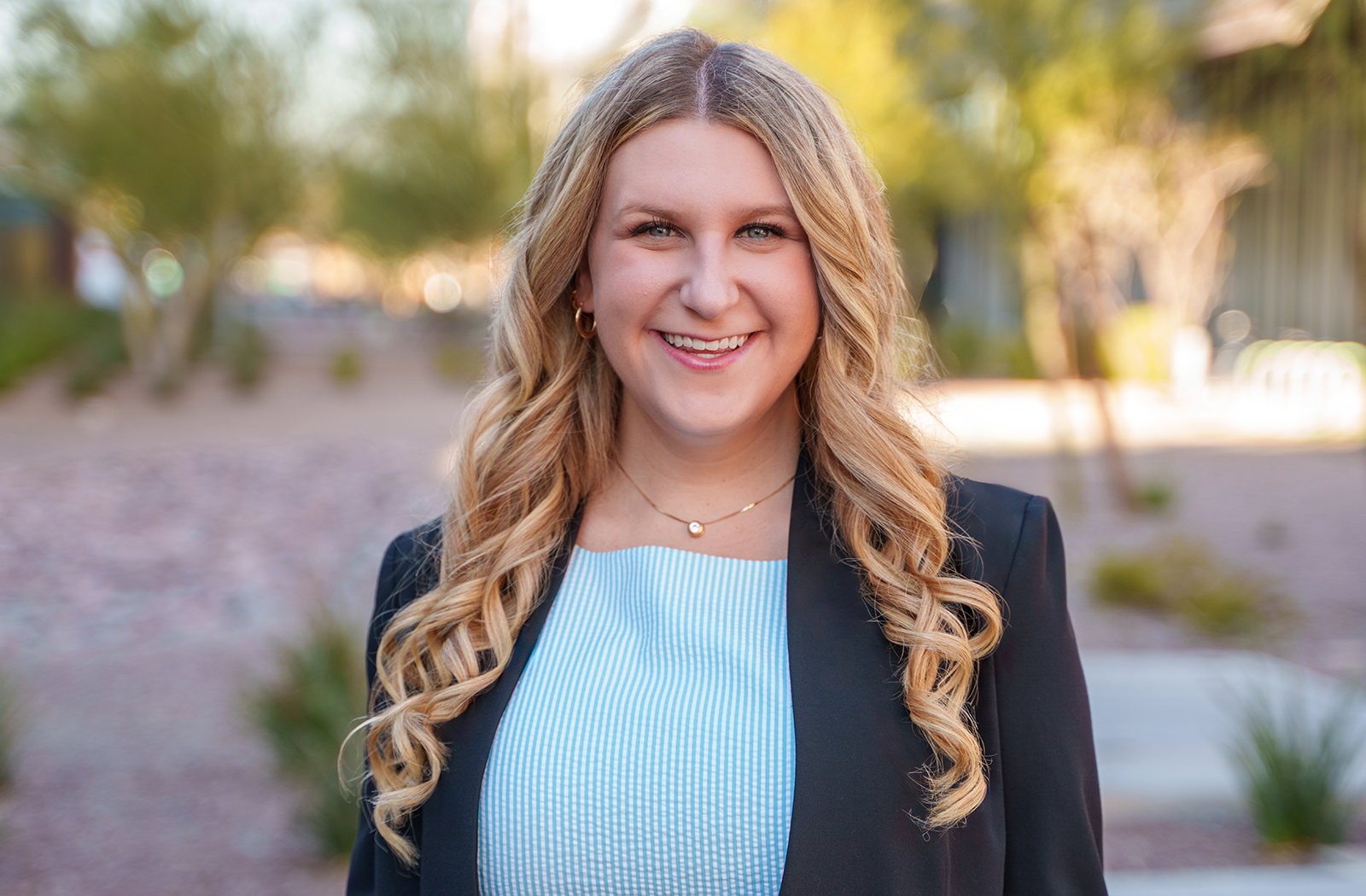
Third-Year Medical Student Blake Feldmar Chosen for the Shirley D. Curson Medical Student Scholarship

In her journey to a medical degree, Blake Feldmar, Class of 2025, has consistently sought opportunities to create a healthier future for Arizona and beyond.
That dedication was recognized and rewarded by the *University of Arizona Hillel Foundation with the Shirley D. Curson Medical Student Scholarship. The scholarship will provide $17,500 a year for her third and fourth years of medical school. A merit-based award, the Curson scholarship recognizes Jewish students with a history of social or civic responsibility, community involvement and service.
Feldmar was deeply grateful to be recognized and selected. “The Jewish community is something that has played a huge role in my life, from childhood to college and in medical school, as well,” she said. “And this scholarship was a really nice way to recognize and merge both my commitments and the support that the Jewish community has given me, as well as my commitment to community service — which is also hugely important to me.”
Since she entered medical school at the University of Arizona College of Medicine – Phoenix, service has been integral in her studies. Actively pursuing a Certificate of Distinction in Global Health, she has helped provide care to migrants in Rocky Point, Mexico. As an extension of that work, she is also the principal investigator in a Global Health Development Project. Collaborating with Central American doctors, she hopes to create an improved obstetrics and gynecology (OB/GYN) residency evaluation system in Honduras and Panama.
Feldmar’s extracurricular interests extend beyond just those efforts. She is a part of Project Waterfall, joining an interdisciplinary team focused on the intersection between obstetrics and neurosurgery; and, since 2021, she has volunteered with the New Hope Teen Pregnancy Program. Through that program, she has taught pregnancy, birth and infant care classes to pregnant teens at Valleywise Health Phoenix. She served as its president in 2022, planning and coordinating the program’s volunteer staffing and training.
Feldmar stressed why she was so passionate about being involved. “I am still definitely learning about what makes a good physician. But currently, I think the best physicians truly are people,” she said. “People who are reflective of their communities and can represent and are well aware of and knowledgeable about the issues that those communities are facing, so that they can effectively advocate for those patients and treat them well and address barriers properly.”
In addition, Feldmar helped spearhead the Holocaust Medical Education Study — where she performed a series of interviews with medical students and did a subsequent quantitative and thematic analysis to evaluate their knowledge of the Holocaust and its relationship to medical ethics. This is a topic she spoke in depth about on the Bioethics at the Crossroads podcast hosted by David Beyda, MD, chair of the college’s Department of Bioethics and Medical Humanism and director of the Global Health Program.
Dr. Beyda talked highly of Feldmar’s commitment to the subject and of her deserved selection for the award. “Blake’s dedication and exceptional performance in exploring this complex and somber chapter of history is truly commendable,” he said. “She has an ability to delve deeply into the subject, showing both a keen understanding and a sensitive approach that reflects not only academic excellence but also a remarkable emotional maturity. She is well deserving of the Shirley Curson Scholarship!”
The Hillel Foundation, an on-campus Jewish organization that encourages student leadership and initiative, has offered the scholarship to second-year students in the U of A Colleges of Medicine in Tucson and Phoenix every other year since 2013.
About the College
Founded in 2007, the University of Arizona College of Medicine – Phoenix inspires and trains exemplary physicians, scientists and leaders to advance its core missions in education, research, clinical care and service to communities across Arizona. The college’s strength lies in our collaborations and partnerships with clinical affiliates, community organizations and industry sponsors. With our primary affiliate, Banner Health, we are recognized as the premier academic medical center in Phoenix. As an anchor institution of the Phoenix Bioscience Core, the college is home to signature research programs in neurosciences, cardiopulmonary diseases, immunology, informatics and metabolism. These focus areas uniquely position us to drive biomedical research and bolster economic development in the region.
As an urban institution with strong roots in rural and tribal health, the college has graduated more than 1,000 physicians and matriculates 130 students each year. Greater than 60% of matriculating students are from Arizona and many continue training at our GME sponsored residency programs, ultimately pursuing local academic and community-based opportunities. While our traditional four-year program continues to thrive, we will launch our recently approved accelerated three-year medical student curriculum with exclusive focus on primary care. This program is designed to further enhance workforce retention needs across Arizona.
The college has embarked on our strategic plan for 2025 to 2030. Learn more.